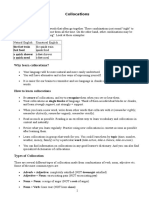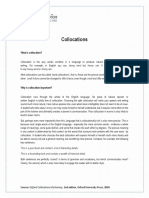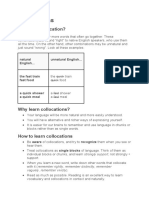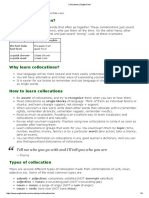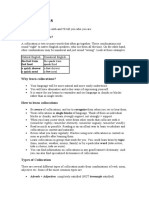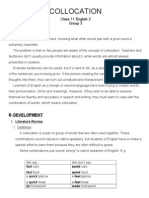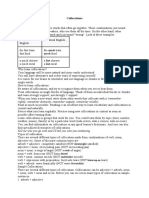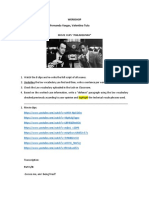0% found this document useful (0 votes)
51 views3 pagesUnderstanding English Collocations
Collocation refers to words that are commonly used together to convey a specific meaning. For example, "heavy rain" is a collocation because it implies more rain than saying "big rain" or "strong rain." Collocations occur in verb combinations like "take a break" or "take a bath," adjective combinations like "deep feeling" or "heavy traffic," and noun combinations like "tea leaf" or "paper flutters." Collocations are important in business contexts where they combine with keywords to form business expressions such as "security blanket," "cash flow," and "go bankrupt."
Uploaded by
Valentina Tuta HortaCopyright
© © All Rights Reserved
We take content rights seriously. If you suspect this is your content, claim it here.
Available Formats
Download as DOCX, PDF, TXT or read online on Scribd
0% found this document useful (0 votes)
51 views3 pagesUnderstanding English Collocations
Collocation refers to words that are commonly used together to convey a specific meaning. For example, "heavy rain" is a collocation because it implies more rain than saying "big rain" or "strong rain." Collocations occur in verb combinations like "take a break" or "take a bath," adjective combinations like "deep feeling" or "heavy traffic," and noun combinations like "tea leaf" or "paper flutters." Collocations are important in business contexts where they combine with keywords to form business expressions such as "security blanket," "cash flow," and "go bankrupt."
Uploaded by
Valentina Tuta HortaCopyright
© © All Rights Reserved
We take content rights seriously. If you suspect this is your content, claim it here.
Available Formats
Download as DOCX, PDF, TXT or read online on Scribd
/ 3








